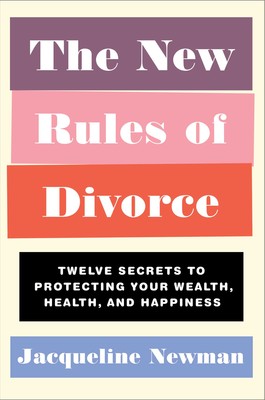Bitcoin the New Mattress Full of Cash for Divorce Cheats
Originally printed in Bloomberg by David McAfee
Soaring Bitcoin and other unregulated digital currencies are giving husbands and wives a new way to hide money in a divorce.
The perceived privacy and anonymity that cryptocurrencies afford users make them attractive options for parties seeking to conceal marital assets, Peter M. Walzer, the president-elect of the American Academy of Matrimonial Lawyers (AAML) told Bloomberg Law.
“Just think Venmo or PayPal—someone would have to get your mobile phone to find out about these transactions,” Walzer told Bloomberg Law in a Dec. 21 email. “Bitcoin and its nefarious relatives—Coinye and other cryptocurrencies—are Venmo on steroids.”
He said Bitcoin is seen as “anonymous and allegedly untraceable.” It’s “trickier to find.”
Bitcoin’s meteoric rise has placed it in the investment spotlight, where it made big headlines as 2017 drew to a close. Along with a jolt of popularity and soaring value, its game-changing potential is imagined across a spectrum of financial scenarios, from hedge fund investment to the so-called marital pot.
Divorcing parties are required to exchange financial information, and a spouse may try to conceal property, liquid assets, and liabilities to their advantage. It’s nothing new.“People can get creative if they desire to hide money,” Jacqueline Newman, a New York divorce lawyer, told Bloomberg Law in a Dec. 21 email.
She said this could include buying excessive gift cards, hiding money in the overpayment of taxes, overpaying lawyers’ retainers, and buying items only to return them later.
This also could include unreported income or transferring securities to relatives, or squirreling away an asset that’s hard to trace.
Bitcoin Mania
Enter Bitcoin. Introduced in 2009, it’s the world’s largest cryptocurrency, which is a digital form of money not tied to any financial institution or backed by a governing authority. Web-based transactions are anonymous and accounts are secret, making their assets very difficult to identify unlike a deposit in a bank or investment account.
Bitcoin’s exponential growth over the past year and incremental steps on mainstream trading platforms have boosted its appeal even though some Wall Street and other financial professionals warn of a speculative bubble. And Bitcoin’s privacy relative to other currencies makes it a perfect asset for those looking to conceal money from a soon-to-be ex-spouse, according to experts.
Bitcoin and all cryptocurrencies “remain great conduits for money laundering and hiding the proceeds of any operation, whether legitimate or not,” said Adam S. Tracy, the founder of the Tracy Firm LTD in Chicago.
Tracy represents individuals and businesses that operate with Bitcoin and other forms of cryptocurrency.
“In the family law context, and to a lesser extent in the post-judgment collection arena, cryptocurrency could have a significant impact when litigants elect to conceal property or transmute currency into harder-to-detect cryptocurrency,” Tracy told Bloomberg Law in a Dec. 27 email.
He added that, if one were inclined to hide assets from a spouse, “the use of cryptocurrency would have to be deliberate, planned and done over time to be more effective than attempting the same with currency.”
Concerns raised by divorce attorneys like Walzer are “absolutely justified,” said Danny Yang, founder of BlockSeer, which creates software to track Bitcoin transactions by analyzing its public ledger, or the blockchain, to provide greater transparency.
He said there are many ways to obtain Bitcoin without leaving a withdrawal on a bank statement. For instance, some get it by purchasing items on Amazon, which are then sent to the seller in exchange for Bitcoin. Others simply “mine” the cryptocurrency, according to Yang, referencing the process by which new units of the currency are created.
Yang also acknowledged that services like BlockSeer that trace Bitcoin transactions aren’t yet widely available. The work is “quite specialized,” he said.
For instance, last year, an attorney for a woman who was going through a divorce tried to hire BlockSeer to track her husband’s Bitcoin. The data sciences company, which typically deals with law enforcement and corporate clients, didn’t have time to do that work, Yang said.
Risky Proposition
Although Bitcoin may be rising in popularity and may seem like an option for a nefarious spouse, there are serious risks of using it to hide assets. Any success in this area may be short lived, and not all divorce lawyers are convinced that cryptocurrencies are the new Cayman Islands or Swiss bank accounts.
Discovery rules apply in divorce, both deposition and interrogatories, which are formal written questions. Newman, the New York attorney, said divorcing couples fill out sworn statements of net worth listing all liabilities. Attorneys also will often review bank statements and look for discrepancies.
“Therefore, if someone were to purchase Bitcoin (or any other investment) the withdrawal will show up and that will lead to questioning by the attorney for the spouse as to where the money went,” she said.
“So, unless a spouse already is hiding bank accounts and not producing the documents to the other side, then the odds of really hiding money in divorces using Bitcoin are slim,” she said.
Tracy also said hiding money in a cryptocurrency would put the litigant “in a position that would likely compel them to misrepresent themselves before a judge.”
A spouse can also generally go back to court after the divorce and reopen the property division if hidden assets are discovered. This generally leads to a do-over of alimony and child support, too.
As for how divorce attorneys and forensic accountants will try and deal with tracking Bitcoins in a divorce, Walzer said they will look to the federal government.
The IRS, for example, is highly motivated to track this “money” down, he said.
“If someone is hiding money from the spouse, they are probably hiding it from the IRS,” Walzer said. “As they get more sophisticated, we will borrow their tools to uncover this fraud.”
Buy Jacqueline's Book
The New Rules of Divorce is the definitive guide to navigating divorce in today’s world.
